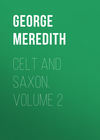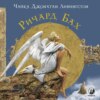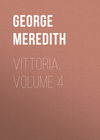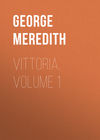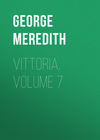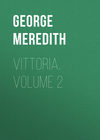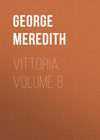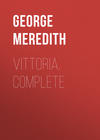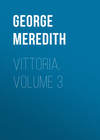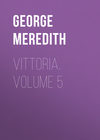Читать книгу: «Celt and Saxon. Volume 2», страница 5
After a term of prolonged preachification he is compelled to lash that he may less despise the age. He has to do it for his own sake. O gobbling age! swallowing all, digesting nought, us too you have swallowed, O insensate mechanism! and we will let you know you have a stomach. Furiously we disagree with you. We are in you to lead you or work you pangs!
Rockney could not be a mild sermoniser commenting on events. Rather no journalism at all for him! He thought the office of the ordinary daily preacher cowlike. His gadfly stung him to warn, dictate, prognosticate; he was the oracle and martyr of superior vision: and as in affairs of business and the weighing of men he was of singularly cool sagacity, hard on the downright, open to the humours of the distinct discrimination of things in their roughness, the knowledge of the firmly-based materialism of his nature caused him. thoroughly to trust to his voice when he delivered it in ardour—circumstance coming to be of daily recurrence. Great love creates forethoughtfulness, without-which incessant journalism is a gabble. He was sure of his love, but who gave ear to his prescience? Few: the echo of the country now and then, the Government not often. And, dear me! those jog-trot sermonisers, mere commentators upon events, manage somehow to keep up the sale of their journals: advertisements do not flow and ebb with them as under the influence of a capricious moon. Ah, what a public! Serve it honourably, you are in peril of collapsing: show it nothing but the likeness of its dull animal face, you are steadily inflated. These reflections within us! Might not one almost say that the retreat for the prophet is the wilderness, far from the hustled editor's desk; and annual should be the uplifting of his voice instead of diurnal, if only to spare his blood the distemper? A fund of gout was in Rockney's, and he had begun to churn it. Between gouty blood and luminous brain the strife had set in which does not conduce to unwavering sobriety of mind, though ideas remain closely consecutive and the utterance resonant.
Never had he been an adulator of Bull. His defects as well as his advantages as a politician preserved to him this virtue. Insisting on a future, he could not do homage to the belying simulacrum of the present. In the season of prosperity Rockney lashed the old fellow with the crisis he was breeding for us; and when prostration ensued no English tongue was loftier in preaching dignity and the means of recovery. Our monumental image of the Misuse of Peace he pointed out unceasingly as at a despot constructed by freemen out of the meanest in their natures to mock the gift of liberty. His articles of foregone years were an extraordinary record of events or conditions foreseen: seductive in the review of them by a writer who has to be still foreseeing: nevertheless, that none of them were bardic of Bull, and that our sound man would have acted wisely in heeding some of the prescriptions, constituted their essential merit, consolatory to think of, though painful. The country has gone the wrong road, but it may yet cross over to the right one, when it perceives that we were prophetic.
Compared with the bolts discharged at Bull by Rockney's artillery, Captain Con O'Donnell's were popgun-pellets. Only Rockney fired to chasten, Con O'Donnell for a diversion, to appease an animus. The revolutionist in English journalism was too devoutly patriotic to belabour even a pantomime mask that was taken as representative of us for the disdainful fun of it. Behind the plethoric lamp, now blown with the fleshpots, now gasping puffs of panic, he saw the well-minded valorous people, issue of glorious grandsires; a nation under a monstrous defacement, stupefied by the contemplation of the mask: his vision was of the great of old, the possibly great in the graver strife ahead, respecters of life, despisers of death, the real English whereas an alienated Celtic satirist, through his vivid fancy and his disesteem, saw the country incarnate in Bull, at most a roguish screw-kneed clown to be whipped out of him. Celt and Saxon are much inmixed with us, but the prevalence of Saxon blood is evinced by the public disregard of any Celtic conception of the honourable and the loveable; so that the Celt anxious to admire is rebutted, and the hatred of a Celt, quick as he is to catch at images, has a figure of hugeous animalism supplied to his malign contempt. Rockney's historic England, and the living heroic England to slip from that dull hide in a time of trial, whether of war or social suffering, he cannot see, nor a people hardening to Spartan lineaments in the fire, iron men to meet disaster, worshippers of a discerned God of Laws, and just men too, thinking to do justice; he has Bull on the eye, the alternately braggart and poltroon, sweating in labour that he may gorge the fruits, graceless to a scoffer. And this is the creature to whose tail he is tied! Hereditary hatred is approved by critical disgust. Some spirited brilliancy, some persistent generosity (other than the guzzle's flash of it), might soften him; something sweeter than the slow animal well-meaningness his placable brethren point his attention to. It is not seen, and though he can understand the perils of a severance, he prefers to rub the rawness of his wound and be ready to pitch his cap in the air for it, out of sheer bloodloathing of a connection that offers him nothing to admire, nothing to hug to his heart. Both below and above the blind mass of discontent in his island, the repressed sentiment of admiration-or passion of fealty and thirst to give himself to a visible brighter—is an element of the division: meditative young Patrick O'Donnell early in his reflections had noted that:—and it is partly a result of our daily habit of tossing the straw to the monetary world and doting on ourselves in the mirror, until our habitual doings are viewed in a bemused complacency by us, and the scum- surface of the country is flashed about as its vital being. A man of forethought using the Press to spur Parliament to fitly represent the people, and writing on his daily topics with strenuous original vigour, even though, like Rockney, he sets the teeth of the Celt gnashing at him, goes a step nearer to the bourne of pacification than Press and Parliament reflecting the popular opinion that law must be passed to temper Ireland's eruptiveness; for that man can be admired, and the Celt, in combating him, will like an able and gallant enemy better than a grudgingly just, lumbersome, dull, politic friend. The material points in a division are always the stronger, but the sentimental are here very strong. Pass the laws; they may put an extinguisher on the Irish Vesuvian; yet to be loved you must be a little perceptibly admirable. You may be so self-satisfied as to dispense with an ideal: your yoke- fellow is not; it is his particular form of strength to require one for his proper blooming, and he does bloom beautifully in the rays he courts.
Ah then, seek to be loved, and banish Bull. Believe in a future and banish that gross obscuration of you. Decline to let that old-yeoman- turned alderman stand any longer for the national man. Speaking to the brain of the country, one is sure of the power of a resolute sign from it to dismiss the brainless. Banish him your revels and your debatings, prohibit him your Christmas, lend no ear either to his panics or his testiness, especially none to his rages; do not report him at all, and he will soon subside into his domestic, varied by pothouse, privacy. The brain should lead, if there be a brain. Once free of him, you will know that for half a century you have appeared bottom upward to mankind. And you have wondered at the absence of love for you under so astounding a presentation. Even in a Bull, beneficent as he can dream of being, when his notions are in a similar state of inversion, should be sheepish in hope for love.
He too, whom you call the Welshman, and deride for his delight in songful gatherings, harps to wild Wales, his Cambrian highlands, and not to England. You have not yet, though he is orderly and serviceable, allured his imagination to the idea of England. Despite the passion for his mountains and the boon of your raising of the interdict (within a hundred years) upon his pastors to harangue him in his native tongue, he gladly ships himself across the waters traversed by his Prince Madoc of tradition, and becomes contentedly a transatlantic citizen, a member of strange sects—he so inveterate in faithfulness to the hoar and the legendary!—Anything rather than Anglican. The Cymry bear you no hatred; their affection likewise is undefined. But there is reason to think that America has caught the imagination of the Cambrian Celt: names of Welshmen are numerous in the small army of the States of the Union; and where men take soldier-service they are usually fixed, they and their children. Here is one, not very deeply injured within a century, of ardent temperament, given to be songful and loving; he leaves you and forgets you. Be certain that the material grounds of division are not all. To pronounce it his childishness provokes the retort upon your presented shape. He cannot admire it. Gaelic Scots wind the same note of repulsion.
And your poets are in a like predicament. Your poets are the most persuasive of springs to a lively general patriotism. They are in the Celtic dilemma of standing at variance with Bull; they return him his hearty antipathy, are unable to be epical or lyrical of him, are condemned to expend their genius upon the abstract, the quaint, the picturesque. Nature they read spiritually or sensually, always shrinkingly apart from him. They swell to a resemblance of their patron if they stoop to woo his purse. He has, on hearing how that poets bring praise to nations, as in fact he can now understand his Shakespeare to have done, been seen to thump the midriff and rally them for their shyness of it, telling them he doubts them true poets while they abstain from singing him to the world-him, and the things refreshing the centre of him. Ineffectual is that encouragement. Were he in the fire, melting to the iron man, the backbone of him, it would be different. At his pleasures he is anti-hymnic, repellent to song. He has perceived the virtues of Peace, without the brother eye for the need of virtuousness to make good use of them and inspire the poet. His own enrolled unrhythmical bardic troops (humorous mercenaries when Celts) do his trumpeting best, and offend not the Pierides.
This interlude, or rather inter-drone, repulsive to write, can hardly be excluded from a theme dramatising Celtic views, and treating of a blood, to which the idea of country must shine resplendently if we would have it running at full tide through the arteries. Preserve your worship, if the object fills your optics. Better worship that than nothing, as it is better for flames to be blown out than not to ascend, otherwise it will wreak circular mischief instead of illumining. You are requested simply to recollect that there is another beside you who sees the object obliquely, and then you will not be surprised by his irreverence. What if, in the end, you were conducted to a like point of view? Self-worship, it has been said, is preferable to no trimming of the faculty, but worship does not necessarily cease with the extinction of this of the voraciously carnal. An ideal of country, of Great Britain, is conceivable that will be to the taste of Celt and Saxon in common, to wave as a standard over their fraternal marching. Let Bull boo his drumliest at such talk: it is, I protest, the thing we want and can have. He is the obstruction, not the country; and against him, not against the country, the shots are aimed which seem so malignant. Him the gay manipulators propitiate who look at him through Literature and the Press, and across the pulpit-cushions, like airy Macheath at Society, as carrion to batten on. May plumpness be their portion, and they never hanged for it! But the flattering, tickling, pleasantly pinching of Bull is one of those offices which the simple starveling piper regards with afresh access of appetite for the well-picked bone of his virtue. That ghastly apparition of the fleshly present is revealed to him as a dead whale, having the harpoon of the inevitable slayer of the merely fleshly in his oils. To humour him, and be his piper for his gifts, is to descend to a carnival deep underneath. While he reigns, thinks this poor starveling, Rome burns, or the explosive powders are being secretly laid. He and his thousand Macheaths are dancing the country the giddy pace, and there will, the wretch dreads, be many a crater of scoria in the island, before he stretches his inanimate length, his parasites upon him. The theme is chosen and must be treated as a piper involved in his virtue conceives it: that is, realistically; not with Bull's notion of the realism of the butcher's shop and the pendent legs of mutton and blocks of beef painted raw and glaring in their streaks, but with the realism of the active brain and heart conjoined. The reasons for the division of Celt and Saxon, what they think and say of one another, often without knowing that they are divided, and the wherefore of our abusing of ourselves, brave England, our England of the ancient fortitude and the future incarnation, can afford to hear. Why not in a tale? It is he, your all for animal pleasure in the holiday he devours and cannot enjoy, whose example teaches you to shun the plaguey tale that carries fright: and so you find him sour at business and sick of his relaxings, hating both because he harnesses himself in turn bestially to each, growling at the smallest admixture of them, when, if he would but chirp a little over his work, and allow his pleasures to inspire a dose of thoughtfulness, he would be happier, and—who knows?-become a brighter fellow, one to be rescued from the pole-axe.
Now the rain is over, your carriage is at the door, the country smiles and the wet highway waves a beckoning hand. We have worn through a cloud with cloudy discourses, but we are in a land of shifting weathers, 'coelum crebris imbribus ac nebulis foedum,' not every chapter can be sunshine.
CHAPTER XVII
CROSSING THE RUBICON
Rough weather on the Irish sea discharged a pallid file of passengers from the boat at Holyhead just as the morning sun struck wave and mountain with one of the sudden sparkling changes which our South-welters have in their folds to tell us after a tumultuous night that we have only been worried by Puck. The scene of frayed waters all rosy-golden, and golden-banded heathery height, with the tinted sand, breaking to flights of blue, was resplendent for those of our recent sea-farers who could lift an eye to enjoy it. Freshness, illumination, then salt air, vivid distances, were a bath for every sense of life. You could believe the breast of the mountain to be heaving, the billows to be kissing fingers to him, the rollers shattered up the cliff to have run to extinction to scale him. He seemed in his clear-edged mass King of this brave new boundless world built in a minute out of the wreck of the old.
An hour back the vessel was labouring through rueful chasms under darkness, and then did the tricksy Southwest administer grisly slaps to right and left, whizzing spray across the starboard beam, and drenching the locks of a young lady who sat cloaked and hooded in frieze to teach her wilfulness a lesson, because she would keep her place on deck from beginning to end of the voyage. Her faith in the capacity of Irish frieze to turn a deluge of the deeps driven by an Atlantic gale was shaken by the time she sighted harbour, especially when she shed showers by flapping a batlike wing of the cloak, and had a slight shudder to find herself trickling within.
'Dear! and I'm wet to the skin,' she confided the fact to herself vocally.
'You would not be advised,' a gentleman beside her said after a delicate pause to let her impulsive naturalism of utterance fly by unwounded.
'And aren't you the same and worse? And not liking it either, I fear, Sir!' she replied, for despite a manful smile his complexion was tell- tale. 'But there 's no harm in salt. But you should have gone down to the cabin with Father Boyle and you would have been sure of not catching cold. But, Oh! the beautiful . . . look at it! And it's my first view of England. Well, then, I'll say it's a beautiful country.'
Her companion looked up at the lighted sky, and down at the pools in tarpaulin at his feet. He repressed a disposition to shudder, and with the anticipated ecstasy of soon jumping out of wet clothes into dry, he said: 'I should like to be on the top of that hill now.'
The young lady's eyes flew to the top.
'They say he looks on Ireland; I love him; and his name is Caer Gybi; and it was one of our Saints gave him the name, I 've read in books. I'll be there before noon.'
'You want to have a last gaze over to Erin?'
'No, it's to walk and feel the breeze. But I do, though.'
'Won't you require a little rest?'
'Sure and I've had it sitting here all night!' said she.
He laughed: the reason for the variation of exercise was conclusive.
Father Boyle came climbing up the ladder, uncertain of his legs; he rolled and snatched and tottered on his way to them, and accepted the gentleman's help of an arm, saying: 'Thank ye, thank ye, and good morning, Mr. Colesworth. And my poor child! what sort of a night has it been above, Kathleen?'
He said it rather twinkling, and she retorted:
'What sort of a night has it been below, Father Boyle?' Her twinkle was livelier than his, compassionate in archness.
'Purgatory past is good for contemplation, my dear. 'Tis past, and there's the comfort! You did well to be out of that herring-barrel, Mr. Colesworth. I hadn't the courage, or I would have burst from it to take a ducking with felicity. I haven't thrown up my soul; that's the most I can say. I thought myself nigh on it once or twice. And an amazing kind steward it was, or I'd have counted the man for some one else. Surely 'tis a glorious morning?'
Mr. Colesworth responded heartily in praise of the morning. He was beginning to fancy that he felt the warmth of spring sunshine on his back. He flung up his head and sniffed the air, and was very like a horse fretful for the canter; so like as to give Miss Kathleen an idea of the comparison. She could have rallied him; her laughing eyes showed the readiness, but she forbore, she drank the scene. Her face, with the threaded locks about forehead and cheeks, and the dark, the blue, the rosy red of her lips, her eyes, her hair, was just such a south-western sky as April drove above her, the same in colour and quickness; and much of her spirit was the same, enough to stand for a resemblance. But who describes the spirit? No one at the gates of the field of youth. When Time goes reaping he will gather us a sheaf, out of which the picture springs.
'There's our last lurch, glory to the breakwater!' exclaimed Father Boyle, as the boat pitched finally outside the harbour fence, where a soft calm swell received them with the greeting of civilised sea-nymphs. 'The captain'll have a quieter passage across. You may spy him on the pier. We'll be meeting him on the landing.'
'If he's not in bed, from watching the stars all night,' said Miss
Kathleen.
'He must have had a fifty-lynx power of sight for that, my dear.'
'They did appear, though, and wonderfully bright,' she said. 'I saw them come out and go in. It's not all cloud when the high wind blows.'
'You talk like a song, Kathleen.'
'Couldn't I rattle a throat if I were at home, Father!'
'Ah! we're in the enemy's country now.'
Miss Kathleen said she would go below to get the handbags from the stewardess.
Mr. Colesworth's brows had a little darkened over the Rev. Gentleman's last remark. He took two or three impatient steps up and down with his head bent. 'Pardon me; I hoped we had come to a better understanding,' he said. 'Is it quite fair to the country and to Miss O'Donnell to impress on her before she knows us that England is the enemy?'
'Habit, Mr. Colesworth, habit! we've got accustomed to the perspective and speak accordingly. There's a breach visible.'
'I thought you agreed with me that good efforts are being made on our side to mend the breach.'
'Sir, you have a noble minority at work, no doubt; and I take you for one of the noblest, as not objecting to stand next to alone.'
'I really thought, judging from our conversation at Mrs. O'Donnell's that evening, that you were going to hold out a hand and lead your flock to the right sort of fellowship with us.'
'To submission to the laws, Mr. Colesworth; 'tis my duty to do it as pastor and citizen.'
'No, to more than that, sir. You spoke with friendly warmth.'
'The atmosphere was genial, if you remember the whisky and the fumes of our tobacco at one o'clock!'
'I shall recollect the evening with the utmost pleasure. You were kind enough to instruct me in a good many things I shall be sure to profit by. I wish I could have spent more time in Ireland. As it is, I like Irishmen so well that if the whole land were in revolt I should never call it the enemy's country.'
'Excellently spoken, Mr. Colesworth,' said the priest. 'We 'll hope your writings may do service to mend the breach. For there is one, as you know, and more 's the pity; there's one, and it's wide and deep. As my friend Captain Con O'Donnell says, it's plain to the naked eye as a pair of particularly fat laundry drawers hung out to dry and ballooned in extension—if mayhap you've ever seen the sight of them in that state:– just held together by a narrow neck of thread or button, and stretching away like a corpulent frog in the act of swimming on the wind. His comparison touches the sentiment of disunion, sir.'
Mr. Colesworth had not ever seen such a pair of laundry drawers inflated to symbolise the breach between Ireland and England; nor probably, if he had, would the sentiment of national disunion have struck his mind: it was difficult to him in the description. He considered his Rev. friend to be something of a slippery fish, while Father Boyle's opinion of him likewise referred him to an elemental substance, of slow movement-earth, in short: for he continued to look argumentative after all had been said.
Or perhaps he threw a coveting eye on sweet Miss Kathleen and had his own idea of mending a stitch of the breach in a quite domestic way. If so, the Holy Father would have a word to say, let alone Kathleen. The maids of his Church do not espouse her foes. For the men it is another matter: that is as the case may be. Temporarily we are in cordial intercourse, Mr. Colesworth.
Miss Kathleen returned to deck carrying her bags. The gentleman had to descend, and subsequently an amiable dissension arose on the part of the young lady and Mr. Colesworth. She, however, yielded one of her bags, and he, though doubly laden, was happy. All very transparent to pastoral observation, but why should they not be left to their chirruping youthfulness? The captain was not in view, and Father Boyle wanted to go to bed for refreshment, and Kathleen was an airy gossamer, with a boy running after it, not by any means likely to catch it, or to keep it if he did. Proceed and trip along, you young ones!
At the hotel they heard that Captain Con O'Donnell was a snug sleeper upstairs. This, the captain himself very soon informed them, had not been the kernel of the truth. He had fancied they would not cross the Channel on so rattlesome a night, or Kathleen would have had an Irish kiss to greet her landing in England. But the cousinly salute was little delayed, news of the family in Ireland and England was exchanged, and then Mr. Colesworth and the captain bowed to an introduction; and the captain, at mention of his name, immediately cried out that Mr. Colesworth might perchance be a relative of the highly intelligent admirable lady who had undertaken the secretaryship, and by her vast ability got the entire management, of Miss Mattock's benevolent institution, and was conducting it with such success that it was fast becoming a grief to the generous heart of the foundress of the same to find it not only self-paying, but on the road to a fortune, inasmuch as it was already an article in the decrees of fashion among the nobility and gentry of both sexes in the metropolis to have their linen and laces washed at the Mattock laundry.
Mr. Colesworth said he was the brother of the lady in question, he had also the pleasure of an acquaintance with Miss Mattock. He was vehemently congratulated on the relationship, which bore witness, the captain armed, to a certain hereditary share of brains greatly to be envied: brother of Miss Colesworth, a title of distinction in itself! He was congratulated not less cordially for his being so fortunate as to know Miss Mattock, one of a million.
Captain Con retained the hand of Father Boyle and squeezed it during his eulogies, at the same time dispensing nods and winks and sunny sparkles upon Kathleen. Mr. Colesworth went upstairs to his room not unflattered. The flattery enveloped him in the pleasant sense of a somehow now established companionship for the day with a pleasant person from whom he did not wish to separate.
'You made the gentleman's acquaintance, my dear . . . ?' said Con.
Kathleen answered: 'He made friends with our Patrick on the Continent, I think it was in Germany, and came to us to study the old country, bearing a letter from Patrick. He means to be one of their writers on the newspapers. He studies everything; he has written books. He called on us coming and called on us going and we came over together,' said Miss Kathleen. 'But tell me: our Philip?'
'Books!' Con exclaimed. 'It's hard to discover a man in these days who hasn't written books. Oh! Philip! Ease your heart about Philip. They're nursing him, round. He was invalided at the right moment for him, no fear. I gave him his chance of the last vacant seat up to the last hour, and now the die is cast and this time I 'm off to it. Poor Philip—yes, yes! we 're sorry to see him flat all his length, we love him; he's a gallant soldier; alive to his duty; and that bludgeon sun of India knocked him down, and that fall from his horse finished the business, and there he lies. But he'll get up, and he might have accepted the seat and spared me my probation: he's not married, I am, I have a wife, and Master Philip divides me against my domestic self, he does. But let that be: I serve duty too. Not a word to our friend up yonder. It's a secret with a time-fuse warranted to explode safe enough when the minutes are up, and make a powerful row when it does. It is all right over there, Father Boyle, I suppose?'
'A walk over! a pure ceremonial,' said the priest, and he yawned frightfully.
'You're for a nap to recompose you, my dear friend,' remarked the captain.
'But you haven't confided anything of it to Mrs. Adister?'
'Not a syllable; no. That's to come. There's my contest! I had urgent business in Ireland, and she 's a good woman, always willing to let me go. I count on her kindness, there 's no mightier compliment to one's wife. She'll know it when it's history. She's fond of history. Ay, she hates fiction, and so I'm proud to tell her I offer her none. She likes a trifling surprise too, and there she has it. Oh! we can whip up the business to a nice little bowl of froth-flummery. But it's when the Parliamentary voting is on comes the connubial pull. She's a good woman, a dear good soul, but she's a savage patriot; and Philip might have saved his kinsman if he had liked. He had only to say the word: I could have done all the business for him, and no contest to follow by my fireside. He's on his couch—Mars convalescent: a more dreadful attraction to the ladies than in his crimson plumes! If the fellow doesn't let slip his opportunity! with his points of honour and being an Irish Bayard. Why Bayard in the nineteenth century's a Bedlamite, Irish or no. So I tell him. There he is; you'll see him, Kathleen: and one of them as big an heiress as any in England. Philip's no fool, you'll find.'
'Then he's coming all right, is he?' said Kathleen.
'He 's a soldier, and a good one, but he 's nothing more, and as for patriotic inflammation, doesn't know the sensation.'
'Oh! but he's coming round, and you'll go and stroke down mother with that,' Kathleen cried. 'Her heart's been heavy, with Patrick wandering and Philip on his back. I'll soon be dressed for breakfast.'
Away she went.
'She's got an appetite, and looks like a strapped bit of steel after the night's tumbling,' said the captain, seeing her trip aloft. 'I'm young as that too, or not far off it. Stay, I'll order breakfast for four in a quiet corner where we can converse—which, by the way, won't be possible in the presence of that gaping oyster of a fellow, who looks as if he were waiting the return of the tide.'
Father Boyle interposed his hand.
'Not for . . .' he tried to add 'four.' The attempt at a formation of the word produced a cavernous yawn a volume of the distressful deep to the beholder.
'Of course,' Captain Con assented. He proposed bed and a sedative therein, declaring that his experience overnight could pronounce it good, and that it should be hot. So he led his tired old friend to the bedroom, asked dozens of questions, flurried a withdrawal of them, suggested the answers, talked of his Rubicon, praised his wife, delivered a moan on her behalf, and after assisting to half disrobe the scarce animate figure, which lent itself like an artist's lay-model to the operation, departed on his mission of the sedative.
At the breakfast for three he was able to tell Kathleen that the worthy
Father was warm, and on his way to complete restoration.
'Full fathom five the Father lies, in the ocean of sleep, by this time,' said Con. 'And 'tis a curious fact that every man in that condition seems enviable to men on their legs. And similarly with death; we'd rather not, because of a qualm, but the picture of the finish of the leap across is a taking one. These chops are done as if Nature had mellowed their juiciness.'

